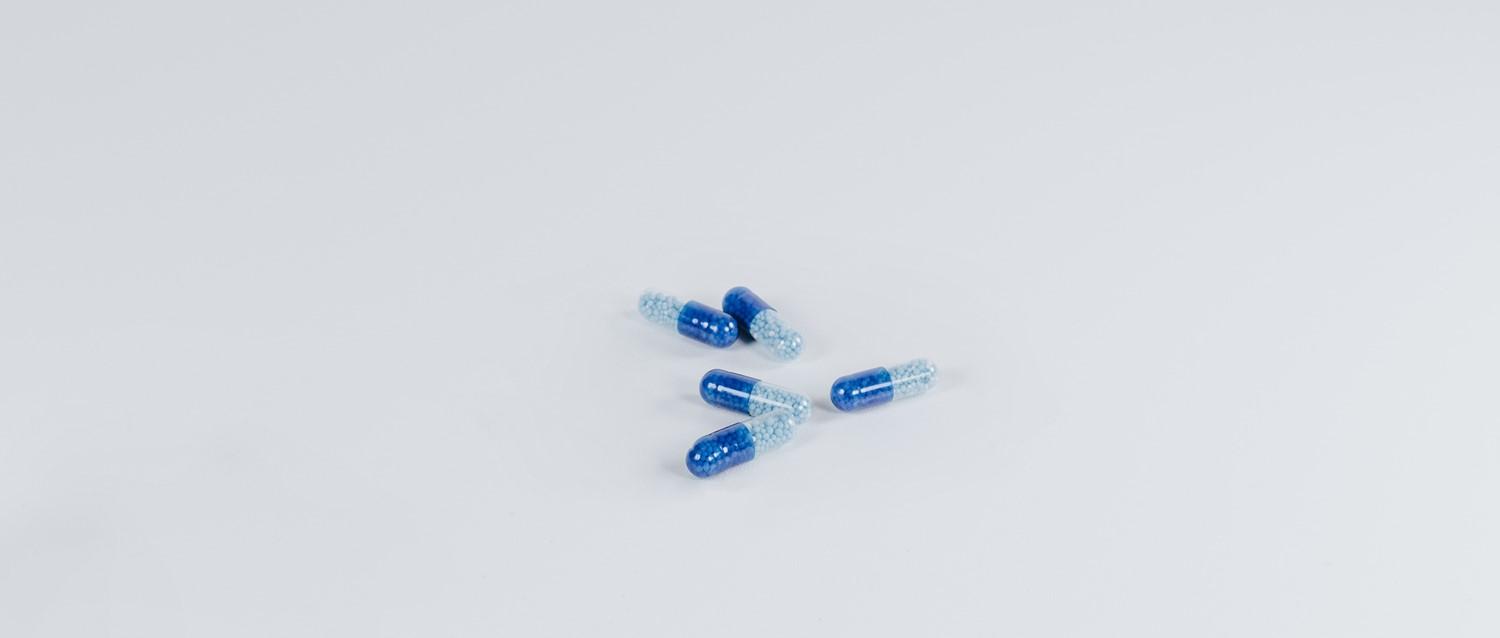
Are joint pain supplements worth your money?
Peer reviewed by Dr Sarah Jarvis MBE, FRCGPLast updated by Natalie HealeyLast updated 6 Mar 2019
Meets Patient’s editorial guidelines
- DownloadDownload
- Share
- Language
- Discussion
Joint problems are a huge problem in the UK and are becoming ever more prevalent. But are painkillers the only solution? And what about the supplements that claim to help? We ask rheumatology experts how we can ensure more people live independently and without pain in the future.
In this article:
Video picks for Joint health
Which conditions do you associate with ageing? You might name dementia, cancer and heart disease, and you'd be perfectly correct. But less talked about is the incidence of joint problems, which actually far outweighs the prevalence of those other long-term diseases put together. 17 million people in the UK have a joint and musculoskeletal problem and this number is only set to rise.
These aren't just minor ailments that we're talking about; joint conditions such as osteoarthritis and rheumatoid arthritis are the greatest cause of disability in the country.
Help people stay independent
"With the burden of disease changing from high mortality to high disability, we need to increase awareness that good joint and musculoskeletal health is fundamental to healthy ageing and vital to ensure people can live independently and without pain," says Professor Anthony Woolf, chair of the Arthritis and Musculoskeletal Alliance (ARMA).
GP and rheumatology expert, Dr Alastair Dickson, agrees. And he's concerned that society has become too dependent on medication rather than finding more sustainable solutions.
Because a joint issue can affect so much more than the point of injury. He challenges us to imagine a woman in her 80s who goes to see her doctor because she has pain in her knee from a minor knock six months ago.
"It's easy to think why isn't she better? Why is she depressed? And then you realise that because she's banged her knee, she can't get up and down the stairs as easily. She can't get out of the loo as easily. And she can't depress the clutch on her car, so she can't drive. She can no longer go to the bridge club and see her friends."
"As you get older, you rapidly lose muscle mass, so when she does get back up, everything else is fragile so she gets more pain, and is at greater risk of a fall," he points out.
The problem with painkillers
Back to contentsThe majority of us reach for the ibuprofen or paracetamol at the first sign of pain, assuming these tablets are mild and completely harmless. But several studies have now concluded that paracetamol actually provides very minimal pain relief for most people and long-term use is even associated with anaemia.
While non-steroidal anti-inflammatory drugs (NSAIDs) such as aspirin and ibuprofen are commonly prescribed for joint pain, they can cause serious stomach side effects such as ulcers and bleeding when taken too often. And these risks only increase with age.
"We've realised that all painkillers are essentially dangerous. So if you've got pain, I want to make sure there's nothing we're making worse with medication, such an anaemia, because that in and of itself causes pain," explains Dickson.
"All these people on regular or long-term NSAIDs, who haven't got a stomach protector, they should have one. And all these people taking painkillers who are anaemic, are we checking? Most of the time we're not. So, if you have unexplained pain, make sure you're not anaemic."
The situation is even worse if we look at the stronger class of painkillers called opioids, which include drugs such as codeine and tramadol. These medications are associated with painkiller addiction.
"If I give you an opioid, you're likely to be less aware of where you are, which increases your risk of falling because it knocks your spatial perception off," points out Dickson. So long-term use isn't recommended here either.
Of course, he doesn't think painkillers are the root of all evil. When used properly, at the right time and the right dose, they can help people to get back to normal activities, sleep well and do the things they enjoy more quickly. And one product class he does recommend is topical anti-inflammatories, such as diclofenac gel or ibuprofen gel.
"I usually tell my patients to use a topical painkiller if they can, because it's an isolated joint, so you don't get the same side effects - provided you use a fingertip's amount sparingly. Because that way you'll protect your stomach and your kidneys."
"People need to think: is this safe? As a rule of thumb, topical NSAIDs are safe. Oral NSAIDs are less safe. And opiates are even less safe and are very addictive."
Continue reading below
What about supplements?
Back to contentsFor people looking for an alternative to painkillers, a variety of supplements claim to help joint pain. These include omega-3 fatty acids, as well as glucosamine and chondroitin. But there's limited evidence to show they actually help.
One supplement that has shown promise in recent studies is one containing rosehip extract (marketed as GOPO). Several clinical trials suggest it can reduce inflammation, pain and stiffness in patients with osteoarthritis. Importantly, there are several 'placebo controlled' trials which reduce or eliminate the placebo effect (if you think you'll feel better, you're more likely to) which show GOPO works better than placebo. In addition, patients using GOPO in one study significantly reduced their need to take traditional or prescribed painkillers compared to those in the placebo group.
But Dickson points out that we still don't know enough about GOPO's safety profile. There could be side effects we're not yet aware of. That's still more positive than standard painkillers, where we definitely know they carry risks, but he still sounds a note of caution.
"The NICE guidelines give a good summary of supplements - and I don't really believe the evidence has changed that much. If anything, we believe less in supplements than we once did," says Dickson.
The best way to treat joint pain
Back to contentsThe key, says Dickson, is to treat joint pain as soon as it starts to impact on daily life. Lifestyle changes might be more important than medication.
Keeping fit helps your bone reform, he explains. While being overweight, sedentary and indeed ageing increase your risk of osteoarthritis and other joint problems.
"Most painkillers are probably ineffective at solving the problem, but they're good at solving some pain. But increasingly, I'm of the opinion that they should be used as adjuncts while we ask 'can I get you fitter?' 'can I get the weight off?'. Every pound of extra weight is four pounds of extra pressure going through your knees. If you have a knee, hip pain, the less weight you have, the better it's going to be."
Staying active will lessen the often sharp decline from osteoarthritis to frailty. Dickson welcomes the recent news that the NHS will hire thousands of physiotherapists to offer musculoskeletal checks, in a bid to keep pensioners independent for longer, while reducing pressures on hospitals.
Continue reading below
Exercises that can help
Back to contentsThere are a few simple exercises you can try at home that can make a big difference to your pain. Dickson shares the advice of Professor Philip Conaghan, a world expert in osteoarthritis.
"He gives his patients a ball of sock, tells them to gently squeeze it firmly for 20 seconds. Do this ten times. And do it two or three times a day. In about three months time, your thumb muscle will be getting bigger and you'll be able to open your jars, twist the taps on and off more easily, and have less thumb pain."
For knee pain, Conaghan suggests sitting in a chair and lifting your legs, pulling your toes towards you and pushing your heel out as far as it will go.
"This tightens your quad muscles and straightens your knee. Lift to the point that you can get your hand underneath. And you hold it there for 20 seconds. And you let go. And you repeat this 20 times, twice a day. In three months time, problem solved."
Dickson believes that helping patients self-manage their pain in future will help more people age healthily and bounce back from a variety of illness.
"I want people to have less pain, so they're less depressed, more socially active and able to mobilise more. If they do that, they'll get a better quality of life and manage their chronic condition better, so they'll have better outcomes, including life expectancy. If you remain fit and healthy, then you'll live longer," he concludes.
Patient picks for Joint health

Bones, joints and muscles
Can winter weather make joint pain worse?
When the weather gets colder, many people with joint and bone problems often feel like their condition gets worse, but does the weather have any impact on the severity of conditions like arthritis?
by Andrea Downey

Bones, joints and muscles
Beat the chill: why movement matters for your joints in cold weather
With Christmas fast approaching and temperatures continuing to fall, people with joint issues should take extra care. Cold weather can worsen pain and stiffness, making the winter months especially challenging. We spoke to an expert to find out why this happens - and how you can protect your joints and stay healthy when Jack Frost comes calling.
by Victoria Raw
Continue reading below
Article history
The information on this page is peer reviewed by qualified clinicians.
6 Mar 2019 | Latest version

Ask, share, connect.
Browse discussions, ask questions, and share experiences across hundreds of health topics.

Feeling unwell?
Assess your symptoms online for free
Sign up to the Patient newsletter
Your weekly dose of clear, trustworthy health advice - written to help you feel informed, confident and in control.
By subscribing you accept our Privacy Policy. You can unsubscribe at any time. We never sell your data.